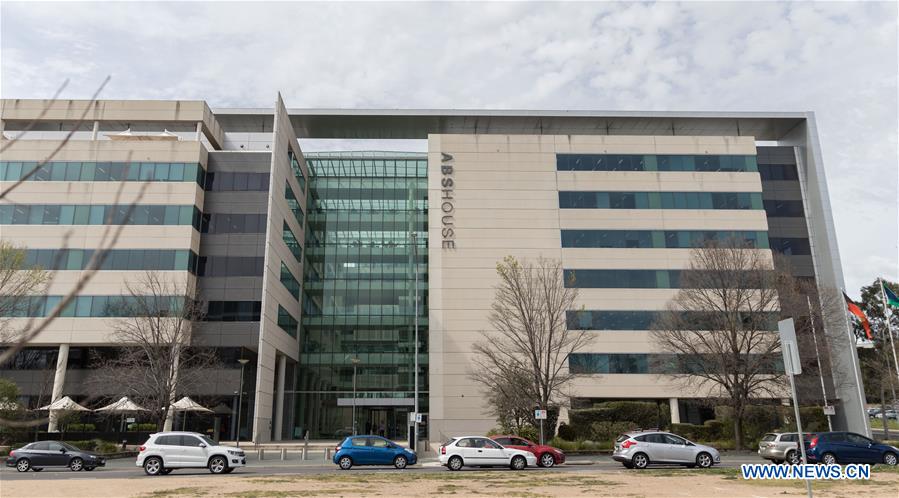
Photo taken on Sept. 17, 2020 shows the Australian Bureau of Statistics (ABS) in Canberra, Australia. (File photo: Xinhua)
SYDNEY, Aug. 10 (Xinhua) -- Australia's peak union representing body, the Australian Council of Trade Unions (ACTU), has called on the government to prioritize full employment and not sacrifice job growth to bring down inflation.
On Wednesday, the ACTU released a paper titled "An economy that works for people," which called for a restructuring of the economy to bring benefits to Australians rather than corporations.
"Our top economic goal as a nation should be to give everyone the chance to get a secure and fairly paid job. This benefits everyone. That's what we mean by full and secure employment," said ACTU Secretary Sally McManus.
The economic restructuring proposed in the paper included recommendations for the Reserve Bank of Australia to balance targeting inflation with growing the job market.
It also called for an "inflation-reducing policy," which would prevent price gouging in the context of Australia's current cost of living situation.
"We can choose to build an economy which gives a greater share of the national wealth to the people who create it and delivers rising living standards for all Australians."
The ACTU delivered the report ahead of Australia's Jobs and Skills Summit, which will take place at the beginning of September in the Australian parliament and discuss problems and goals for the nation's labor market.
Australia's unemployment rate is currently at a 48-year low of 3.5 percent. While a positive for workers, the high levels of employment have presented a challenge for the central bank as it tries to slow inflation.
McManus said stagnating and insecure wages have been a problem long in the making, and it is only now with inflation running upwards that the problem has been put into the spotlight.
A recent report from think tank the Australia Institute showed that real wages, which are wages growth minus inflation, had been falling steadily since the 1990s.
"Working people have suffered through nearly a decade of insecure work and stagnant wages, only now to be met with historically high inflation delivering massive real pay cuts," added McManus.


